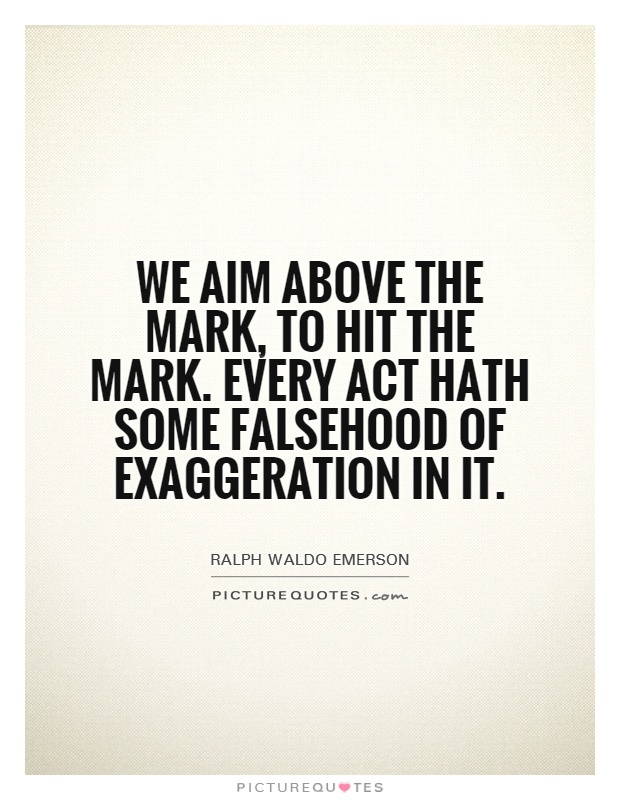We aim above the mark, to hit the mark. Every act hath some falsehood of exaggeration in it

We aim above the mark, to hit the mark. Every act hath some falsehood of exaggeration in it
Ralph Waldo Emerson, a renowned American essayist, lecturer, and poet, is known for his profound insights into human nature and the world around us. One of his famous quotes, “We aim above the mark, to hit the mark. Every act hath some falsehood of exaggeration in it,” encapsulates his belief in the power of striving for excellence and pushing oneself beyond perceived limits.Emerson believed that in order to achieve greatness, one must set ambitious goals and aim higher than what seems attainable. By aiming above the mark, one is challenging themselves to reach new heights and surpass their own expectations. This philosophy is rooted in the idea that growth and progress come from pushing boundaries and stepping outside of one’s comfort zone.
Emerson also recognized that in the pursuit of excellence, there may be some degree of exaggeration or embellishment. This does not mean that one should be dishonest or deceitful, but rather that in striving for greatness, there may be a tendency to amplify one’s efforts or abilities. This exaggeration can serve as a motivator, pushing individuals to go above and beyond in their pursuit of success.
In the context of Emerson’s broader philosophy, this quote speaks to the importance of self-improvement and personal growth. By aiming above the mark, individuals are constantly challenging themselves to do better, be better, and achieve more. This mindset of continuous improvement is essential for personal development and fulfillment.
Emerson’s words also highlight the idea that success is not always a linear path. There may be setbacks, failures, and moments of doubt along the way. However, by aiming high and pushing through these challenges, individuals can ultimately reach their goals and achieve greatness.












 Friendship Quotes
Friendship Quotes Love Quotes
Love Quotes Life Quotes
Life Quotes Funny Quotes
Funny Quotes Motivational Quotes
Motivational Quotes Inspirational Quotes
Inspirational Quotes